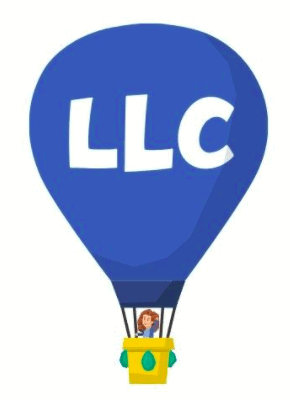Starting an LLC for a Blogging Business

Why Start an LLC for Your Blog?
Most bloggers who make any money from their blogs are sole proprietors. In essence, you are your blog. You own and operate your blog business by yourself, which means you’re responsible for all profits, losses, and debts. Not all blog business owners need to leave the world of sole proprietors behind, but if you feel more comfortable limiting your potential exposure to lawsuits and bankruptcy and want to be able to add a layer of privacy to your blogging life, an LLC just might be the right choice for you.
Advantages of Forming an LLC for Your Blog
Small business owners form LLCs for a number of reasons. We’ll examine a few here.
You want to protect your assets
When you’re a sole proprietor, there is no legal separation between the business and you. If your business gets sued or goes bankrupt, your possessions (home, car, bank accounts, 401k, etc…) could be used to satisfy the debt. An LLC is legally separate from the members who own it. Forming an LLC for your business means that if something goes wrong, and the business gets sued or goes belly up, your personal assets can’t be used to settle the debts owed.
You desire tax flexibility
By default, a single-member LLC is taxed just like a sole proprietorship, which means that the business itself doesn’t pay taxes. Instead, profits pass from the business to the owner (member) who then reports those earnings on their personal tax filings. Unlike a sole proprietorship, an LLC can elect to be taxed as an S corp or as a C corp. This flexibility allows LLC members to choose the best tax structure for their business.
You want to maintain your privacy
All states require LLCs to appoint a registered agent. Your registered agent is the person or business that is tasked with receiving service of process, which is a fancy legal term for lawsuits, summons, subpoenas, and court documents. A professional registered agent will not only handle all of your important legal mail, freeing you up to focus on your business, they’ll also protect your privacy by listing their address instead yours on all business formation paperwork allowable. This helps to keep your personal information off public record.
Disadvantages of Forming an LLC for Your Blog
While it is generally advantageous for small business owners to start LLCs, they may not always be the right fit. Here’s a few reasons why you may not need an LLC for your blogging business.
Your blog isn’t making much money
If your blog isn’t raking in the cash, it might make sense to continue operating as a sole proprietorship. Plus, if this blog is just a hobby, or you’re not sure if you want to keep operating it for years to come, forming an LLC just may not be worth the time and cost. While they are easy to start, LLCs aren’t free. Most state filing fees are around $100, but some states charge $300 or more to form an LLC.
You don’t like extra paperwork
Starting an LLC requires filing paperwork with the state. You’ll also need to pay state filing fees. On top of the filing fees and paperwork, you’ll most likely have to file an annual or biennial report with the state, which also come with their own fees.
Will an LLC protect my privacy?
It can, but you really need to hire a professional registered agent and business formation service to do the heavy lifting for you. At Northwest, when you hire us to serve as your registered agent or form your LLC, we list our address instead of yours. In fact, any state form where we can provide our information, we will. This makes it a bit harder for shady internet sleuths to get their eyes on your personal information. However, because each state has different laws on which LLC member names are required to be listed on formation documents and annual filings, total privacy is sometimes hard to come by in some states. Of course a sole proprietorship offers zero privacy, so in the grand scheme of things, an LLC formed by professionals who know where they’re doing is one of the best ways to keep your private information out of the public eye.
Check out our page on how to Live Privately with an LLC.
How to Form an LLC for Your Blog
You’ve weighed all your options and finally made the decision to form an LLC for your blogging business. Here are the basic steps you’ll need to take to form your LLC and get it ready to do business.
1. Appoint a Registered Agent
This is a non-negotiable, as every state will require your LLC to have a registered agent. Your registered agent needs to be available during normal business hours to receive legal correspondence and official paperwork on behalf of your LLC. Your registered agent is required to have a physical address in the state where your LLC was formed. You can serve as our own registered agent, or appoint a friend or employee, but many business owners choose to hire a professional registered agent service like Northwest.
2. Give Your LLC a Name
Here’s the fun part, you get to name your LLC. You can’t name it after any other business in your state, which means you’ll need to check your Secretary of State’s business name database to make sure your preferred LLC name is kosher. When choosing a name, you’ll also need to avoid restricted words or phrases that make your LLC sound like it does something it doesn’t. You’ll also need to include an entity identifier, such as “L.L.C.,” “LLC,” or “Limited Liability Company.”
3. Prepare and File Required State Paperwork
To establish your LLC as a legal entity, you’ll need to file an official application with your state. Most states call this document Articles of Organization. Some states may require LLC member information on the articles. The basic information you’ll need to provide includes:
- Business name
- Address of your principal place of business
- Registered agent’s address
- The purpose of the business
- The way your LLC will be managed
- Contact information for the registered agent (and in some states, the agent’s signature)
- The duration of the LLC
4. Create an Operating Agreement
An operating agreement contains all the important information regarding the operations of your LLC. In essence it should act as a road map for how the LLC will operate. You’ll want to include how business profits will be distributed, who contributes capital for the business, the detailed management rights of all members of the LLC, and even how members leave the LLC. Even if you’re just running your blog business solo, it never hurts to have all the legal details in writing.
5. Get an EIN
An EIN is like a social security number for your LLC. The main reason you want an EIN for your LLC is that it helps to establish separation between your personal and business finances. Banks often require an EIN when opening a business account. Every LLC that will pay taxes or hire employees needs an EIN. Even if you don’t plan to hire employees, an EIN is a good idea, and it’s a must for any LLC with more than one member. You can obtain an EIN straight from the IRS website.



